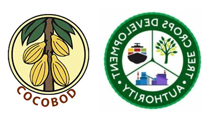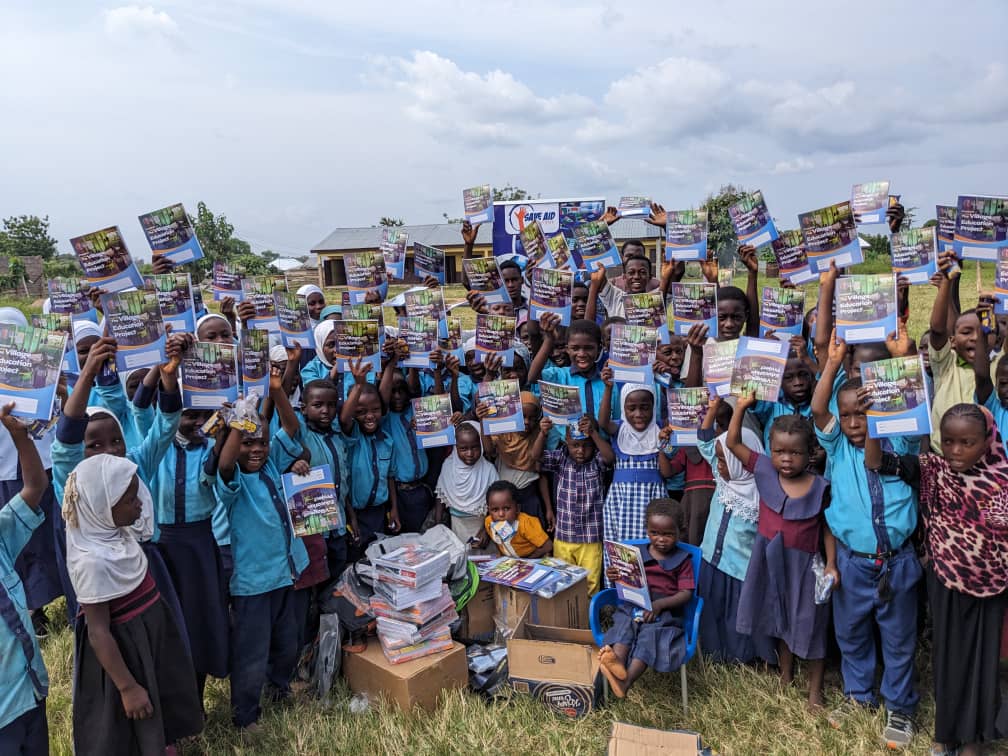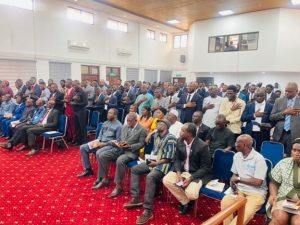
Ghana is fast becoming a pivotal player in the global shea economy, and with the highly anticipated World Shea Expo 2025 drawing closer, the spotlight is now shifting to the institutions working tirelessly behind the scenes to shape the industry’s trajectory.
In the northern capital of Tamale, preparations are reaching fever pitch for what is being billed as the largest convergence of stakeholders in the shea value chain—from women collectors and local buyers; to small, medium and large-scale processors; to global buyers, policy-makers and investors.
Yet beyond the banners, panels and product displays lies a deeper story of national ambition and the commitment and effective role played by governmental institutions within the value chain.

At the heart of this story are two institutions whose mandates may slightly differ, but whose missions converge: the Ghana Cocoa Board (COCOBOD) and the Tree Crops Development Authority (TCDA).
Their leadership and the effective delivery of their respective mandates in the shea sector have demonstrated government’s commitment to the country’s non-traditional exports—no longer as afterthoughts to cocoa or gold, but as strategic assets worthy of long-term investment, scientific inquiry and international promotion.
Tamale will host the World Shea Expo 2025 from September 2–4 at the Modern City Hotel, drawing over 8,000 participants, including producers, buyers, investors and policy-makers.
Organised by Savannah Golden Tree Ltd. with support from GEPA, COCOBOD, Ghana EXIM Bank, COCOSHE, TCDA, PIAA, the Northern Regional Coordination Council and UDS, the expo aims to position Ghana as a global leader in the US$2billion shea industry.
More than just a trade event, the expo offers a platform for policy dialogue, business networking and sector transformation. Under the theme ‘Empowering Women and Youth-Led SMEs: The Role of Government and Financial Institutions’, the event emphasises inclusive growth and economic empowerment for women and young entrepreneurs across the shea value chain.

President John Mahama is expected to open the expo, underscoring the government’s commitment to advancing shea as a key driver of Ghana’s economic future.
While shea butter has long held a respected place in northern Ghana’s cultural and economic life, it is now increasingly sought after on the global stage for its use in cosmetics, skincare, pharmaceuticals and food industries. But global interest alone is not enough.
To sustain and grow Ghana’s presence in the international market, the country must ensure that its shea sector is guided by structure, driven by data and grounded in sustainable practices. This is precisely where the roles of COCOBOD and TCDA become indispensable.
COCOBOD, traditionally associated with Ghana’s globally celebrated cocoa sector, has also been responsible for the Shea Value Chain over the last 40 years since the passage of the Law establishing COCOBOD (PNDC Law 81 of 1984). Over the years, it has been quietly transferring its deep institutional knowledge and experience—especially in research, quality assurance, conservation and support for women—into the shea space.
While it may not always take centre stage in the public eye, COCOBOD’s behind-the-scenes efforts are crucial: reducing the gestation period of shea from 20 years to 5 years, improving shea propagation techniques and offering agronomic training, promoting best post-harvest practices, undertaking socio-economic research, supporting women and women cooperatives who are the backbone of the industry with logistics and engaging in conservation of shea trees through community sensitisation and engagement. Through these initiatives, COCOBOD is elevating shea from an informal rural livelihood to a recognised national asset.
Meanwhile, the Tree Crops Development Authority (TCDA), which was established to diversify Ghana’s tree crop exports beyond cocoa, is positioning itself as a game-changer in regulatory oversight.
As the shea industry grows in complexity and competitiveness, TCDA is ensuring that Ghana stays ahead of the curve through standardisation, traceability systems, investment coordination and international certifications. In a sector that has often been plagued by fragmentation and informality, TCDA’s role as a centralising authority is not only timely—it is transformative.
Together, COCOBOD and TCDA represent the twin engines driving Ghana’s shea industry into a new era. Their coordinated efforts reflect a broader national vision: that Ghana’s economic future must be built on research, value addition, inclusivity and global relevance.
As the countdown to the World Shea Expo 2025 continues, the stage is now set not just for a showcase of products, but for a celebration of strategy—one led by institutions determined to place Ghana at the forefront of the global shea revolution.
COCOBOD’s quiet but strategic role in the shea value chain
Although best known for its stewardship of Ghana’s world-renowned cocoa sector, the Ghana Cocoa Board (COCOBOD) has over the last 40 years been a powerful ally in the shea industry.
Its quiet yet dedicated and deliberate activities in the value chain reveals a strategic pivot—one that recognises the potential of shea as not just an agricultural product, but a driver of rural livelihoods, foreign exchange and industrial innovation.
At the heart of COCOBOD’s intervention is scientific research, conservation, logistics support and innovation. Through the Cocoa Research Institute of Ghana (CRIG) sub-station at Bole in the Savannah Region, COCOBOD is deploying decades of breeding and agronomic expertise to develop improved shea varieties that bear fruit earlier, yield higher oil content and are more resilient to climate stress.
For many years, shea has been viewed as a wild, naturally occurring tree with unpredictable productivity. COCOBOD is helping to change that narrative by investing in domestication efforts, thereby turning shea into a systematically cultivated crop with commercial viability.
Beyond research, COCOBOD is also contributing to women empowerment and value chain development. It is actively extending training programmes—traditionally reserved for cocoa farmers—to shea cooperatives and agroforestry farmers in the north.
These programmes include sustainable planting, improved harvesting techniques, post-harvest handling and storage methods that ensure the integrity of the kernels and conservation of shea trees. In doing so, COCOBOD is elevating the technical capacity of women who dominate the shea value chain, thus making them more competitive in both local and export markets.
Another notable intervention is COCOBOD’s push for quality standardisation and certification. As global buyers become more discerning, Ghana must ensure that its shea butter and related products consistently meet international standards.
COCOBOD’s experience in quality assurance is now being adapted to the shea sector, helping producers to adopt best practices during post-harvest handling of shea nuts, processing and storage of shea butter, which are essential for accessing premium markets in Europe, North America and Asia.
In addition, COCOBOD’s collaboration with central government facilitated the construction of the largest, modern shea processing factory at Buipe in the Savannah Region, PBC Shea, furnished with state-of-the-art equipment for the processing of high grade shea butter. This resulted in a readily available market for shea pickers in the region; thus, contributing significantly to poverty alleviation, inclusive economic growth, and women empowerment.
Finally, COCOBOD’s activities — such as sensitisation of local communities, particularly Shea Women Cooperatives, and engagement of Chiefs, Assembly men and women, and opinion leaders — continue to make a huge impact on Shea Tree Conservation, and the establishment of bye-laws prevents the cutting down of shea trees for charcoal, building, etc.
Ultimately, COCOBOD’s role in the shea ecosystem may be understated, but it is foundational.
By bringing institutional expertise, regulatory backing and scientific innovation into the equation, COCOBOD is helping transition Ghana’s shea sector from a largely informal trade into a vibrant, structured, export-ready industry.
In a sector long overlooked by mainstream agricultural policy, this quiet revolution signals something profound: that Ghana is ready to treat shea not just as a local tradition, but as a global opportunity.
Regulating for prosperity and sustainability
As the shea industry evolves from an informal trade into a structured export sector, the role of the Tree Crops Development Authority (TCDA) is becoming increasingly indispensable.
Established by the Ghanaian Government to regulate and promote the country’s non-traditional tree crops—shea, cashew, coconut, oil palm, mango and rubber—the TCDA brings a bold and systemic approach to organising and sustaining Ghana’s shea value chain.
Unlike other agencies that focus primarily on production or exports, TCDA operates as a comprehensive regulatory and development body. Its mandate spans across value chain mapping, policy formulation, market development, investment promotion and coordination among stakeholders.
In the context of shea, this means transforming an otherwise fragmented industry into a harmonised ecosystem where producers, processors and exporters operate under clearly defined standards and national direction.
One of TCDA’s most impactful interventions is its work on traceability and standardisation. Traceability has become a global requirement for commodities traded in international markets, especially for products like shea butter that are used in cosmetics and food.
TCDA is currently working to establish a national traceability system for shea that will allow every kernel and butter batch to be tracked from the source to the final buyer. This doesn’t only increase confidence among foreign buyers but also gives Ghanaian producers the competitive edge needed to secure long-term supply contracts.
In addition, TCDA is working closely with district assemblies and traditional authorities to register farmers and processors into a national database. This digital identification system will help streamline extension services, distribute inputs more efficiently and design interventions based on real-time data.
For the thousands of women involved in shea picking and processing, this marks a significant shift from operating in anonymity to becoming visible economic actors with access to resources, training and markets.
TCDA is also playing a key role in facilitating investment. By working with both local and international financial institutions, the authority is de-risking the shea sector and presenting it as a viable space for commercial lending.
It is also identifying greenfield investment opportunities for private sector players interested in setting up processing facilities, warehouses and transportation logistics in shea-producing regions. In this way, TCDA is unlocking infrastructure that previously held the sector back from achieving scale and efficiency.
Perhaps most importantly, TCDA brings a sense of strategic policy direction to the shea industry. It has initiated dialogues with ministries, donor agencies and farmer organisations to create a unified national development plan for shea. This plan aligns with Ghana’s broader goals of export diversification, rural development and climate resilience.
By championing policies that favour value addition, gender inclusion and environmentally sustainable practices, TCDA is not only organising the sector but also future-proofing it.
Together with COCOBOD, TCDA’s involvement underscores a growing recognition: the shea industry is no longer a side hustle for rural women; it is a pillar of Ghana’s non-traditional export future. With TCDA at the helm of regulation and coordination, the sector is poised to move from fragmented activity to structured prosperity.
Conclusion
As the countdown begins to the World Shea Expo 2025, Ghana stands at a defining moment in its agricultural and industrial journey. This is not just another trade event on the calendar—it is a clarion call to the nation and to the world that Ghana is ready to lead in the global shea space. The momentum is here, the stakeholders are aligned and the vision is bold: to make Ghana the heart of the global shea value chain.
From the far-reaching savannahs of the north where shea trees grow wild and proud, to the laboratories where researchers innovate with new shea-based products, to the boardrooms where policy is being refined for sustainability and scale, the shea sector is gathering force. This growth is not accidental—it is the result of years of institutional planning, grassroots resilience and global collaboration.
COCOBOD’s investments in research, conservation, policy formulation, advocacy and women empowerment over the years have laid a strong foundation for sustainability, quality and consistency.
The Tree Crops Development Authority (TCDA), a relatively young but highly strategic institution, has brought fresh energy and policy coherence to a previously fragmented sector. Together, these institutions—supported by central government, the private sector, NGOs and international partners—are sculpting a future where Ghanaian shea can compete not only in quantity, but in value, innovation and ethics.
But the real power of shea lies not just in its exports—it lies in its people. In the thousands of women who process nuts with care and precision. In the youth-led SMEs crafting world-class products from indigenous knowledge. In the communities whose livelihoods are rooted in the soil beneath these sacred trees. For them, shea is not just a crop—it is a pathway to prosperity.
And so, as Ghana hosts the world in Tamale from September 2–4, 2025, it does so not with modest ambition but with strategic intent. The World Shea Expo is a launchpad for sustainability, investment, partnership and transformation. It is an opportunity to shift from raw exports to refined excellence, from subsistence to global relevance, from potential to impact.
This is Ghana’s shea moment. And to make it count, every stakeholder must rise—government, business, academia, farmers and financiers alike. Let us seize this chance not just to promote shea, but to position Ghana as a global force in natural product innovation. Let us show the world what it means to grow, process, export and sustain the shea value chain with dignity, equity and vision.
The post Comms and branding with Samuel OWUSU-ADUOMI: Ghana gears up for World Shea Expo 2025 with support from COCOBOD and TCDA appeared first on The Business & Financial Times.
Read Full Story
















Facebook
Twitter
Pinterest
Instagram
Google+
YouTube
LinkedIn
RSS